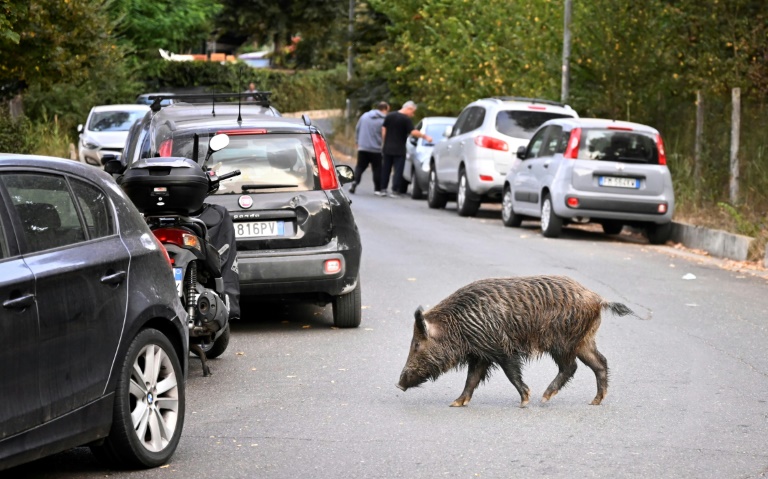The wild boars root through Rome’s rotting rubbish, as furious residents cry foul: there are political fortunes at stake in Italy’s mayoral elections this weekend, but in the Eternal City garbage is the biggest talking point.
From the capital to Milan, Naples and Bologna, voters head to the urns Sunday and Monday for ballots being closely watched as a test ahead of the general election in 2023.
But in Rome — one of the world’s dirtiest cities, according to a ranking last month by the British magazine Time Out — residents are more concerned with the perennial transport, flooding, waste and pothole woes in this city of 2.8 million inhabitants.
Rome’s current mayor, Virginia Raggi from the anti-establishment Five Stars Movement (M5S), has won praise for taking on the city’s fierce new mafia, the Casamonica family of loan sharks and drug traffickers.
But her widely-mocked plans to use sheep as lawnmowers and bees to combat pollution — while rotting refuse piles up next to playgrounds, buses spontaneously combust in the heat and weeds run wild — may cost her dearly.
The candidate of the right-wing alliance, Nicola Michetti, is likely to pocket the most votes due to a split on the left, according to the last polls published before a pre-election blackout.
But he is not predicted to get over the 50 percent of votes needed to avoid a run-off in two weeks — and polls say he may then lose in round two to the Democratic Party’s Roberto Gualtieri, a former economy minister.
– ‘Killer seagulls’ –
Lawyer Michetti, 55, says pick him to clean up the city, or “today we have seagulls and boars, tomorrow it could be cholera”.
His champion, the head of far-right Brothers of Italy party Giorgia Meloni, accuses Raggi of playing the zoologist not the mayor.
“Boars, rats as big as labradors, killer seagulls, we’ve seen it all,” she said this week, saying Rome had become an international joke.
Gualtieri and rival centre-left candidate Carlo Calenda, meanwhile, have called for round tables with experts to tackle the problem of the wild boars.
In the picturesque neighbourhood of Trastevere in Rome, where bins often overflow onto the cobbles, 60-year old resident Tiziana De Silvestro, out walking her dog, said the root of the problem was rubbish left overnight outside bars and restaurants.
“Now the city is full of animals, crows, seagulls, not to mention mice and cockroaches,” she said.
Volunteers sick of the filth have begun in recent years to organise periodic cleaning sessions — but say the city should do its part.
“There are many young people, many voluntary associations that are reacting, that are trying to say: ‘enough is enough’,” Cristiano Tancredi from “Retake Roma” told AFPTV.
“I think the next mayor will have to take this into consideration: there is a great demand from citizens who want a better city, a different city,” he said.
Some 12 million voters are eligible to cast ballots in the elections, which are being held not only in the country’s largest cities but in more than 1,000 smaller centres, including Morterone in Lombardy, which has just 33 inhabitants.
Red-roofed, left-wing stalwart Bologna is considered a safe seat, while the centre-left is confident of taking Milan and Naples too. The race is closer in Turin, which the centre-right is hungrily eyeing.









